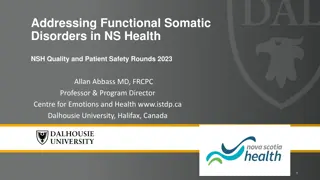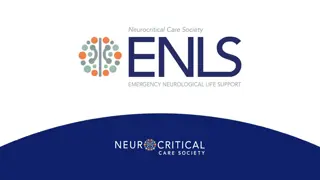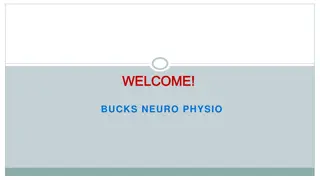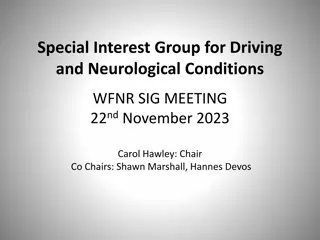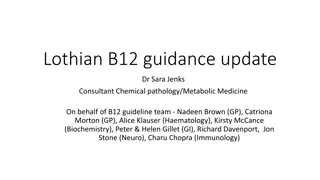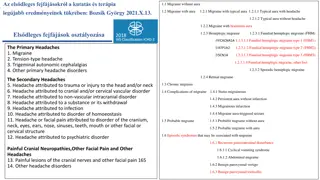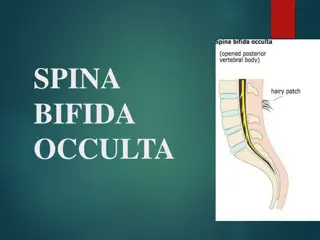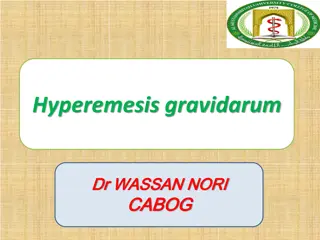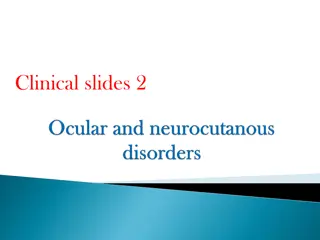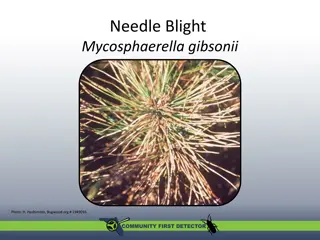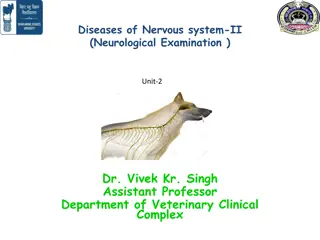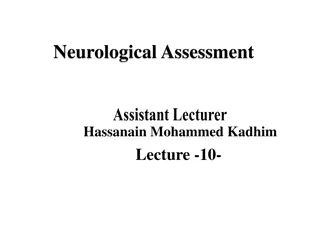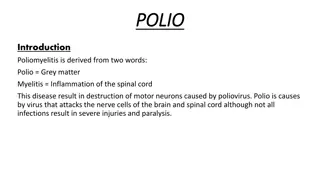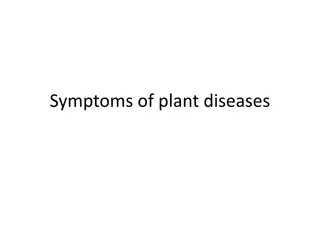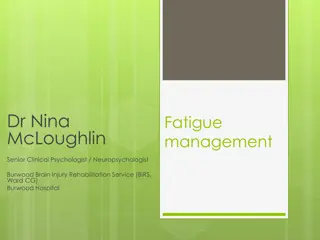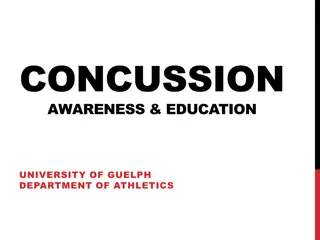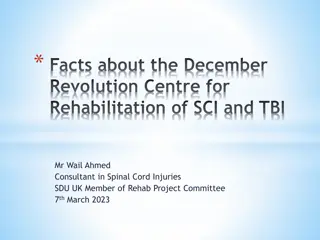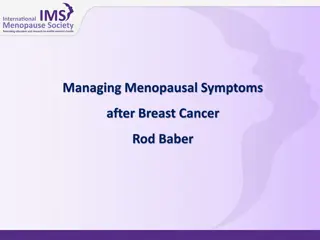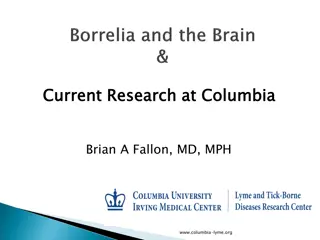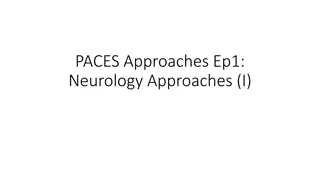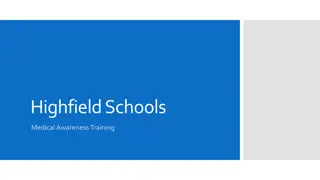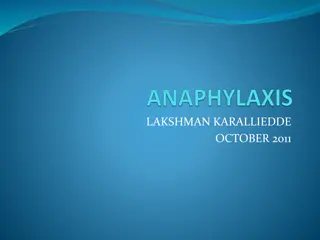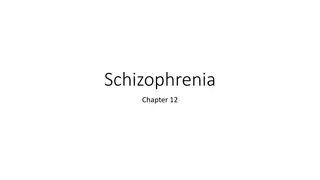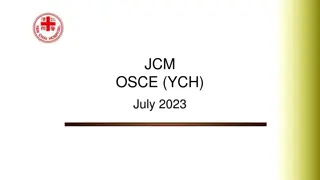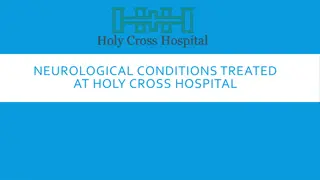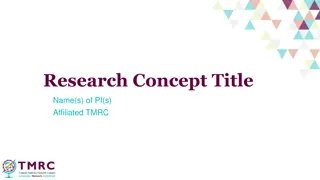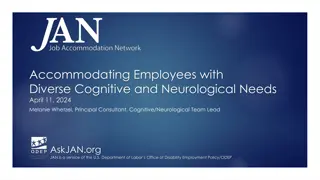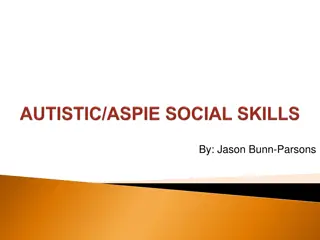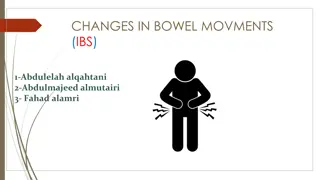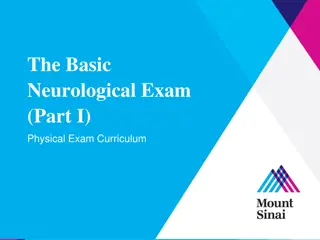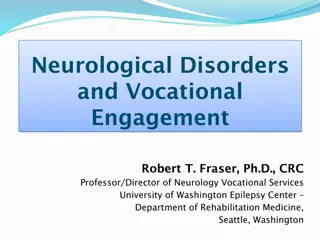Addressing Functional Somatic Disorders in Patient Safety Rounds
Explore the burden of functional somatic symptoms in NS Health, delve into emotional factors contributing to somatic symptoms, and learn about evidence-based short-term talking therapy for functional somatic disorders. Gain insights from reference materials and data on unexplained symptoms and emerg
3 views • 29 slides
Legal and Ethical Challenges in Determining Death Using Neurological Criteria
Explore the intricate legal and ethical dilemmas surrounding the determination of death using neurological criteria. Delve into cases like the Archie Battersbee Case, various legal challenges, and societal expectations regarding defining life and death. Understand the complexities faced in making cr
5 views • 38 slides
Airway Management in Neurological Patients: ENLS Version 5.0
Explore the essentials of airway, ventilation, and sedation in neurological patients through the ENLS Version 5.0 content. Understand the challenges and goals of managing airways in critical situations such as trauma or respiratory distress. Learn about common indications for intubation and the impo
0 views • 37 slides
Looking for the best Physical Therapist in Hazlemere
Are you looking for the Best Physical Therapist in Hazlemere? Then visit Bucks Neuro Physio. They are passionate about providing personalized physiotherapy at home, specializing in neurological conditions. They are a group of experienced physiotherapists who provide quality physiotherapy. They passi
0 views • 6 slides
SIG Meeting for Driving and Neurological Conditions - WFNR 2024
Explore the intersection of driving and neurological conditions at the Special Interest Group (SIG) meeting in November 2023. Discover the importance of driving for mobility and independence, along with future goals to expand the SIG's reach. Engage in workshops, discussions, and exhibitions focusin
0 views • 5 slides
Understanding Migraine: Types, Classification, and Symptoms
Migraine is a complex neurological condition characterized by severe headaches often accompanied by other symptoms. The classification of migraines includes those with and without aura, chronic migraines, and childhood periodic syndromes. Complications and disorders associated with migraines are als
2 views • 46 slides
Update on B12 Deficiency Guidance by Lothian Health Services
Vitamin B12 deficiency is a complex condition with various manifestations, including neurological symptoms. The updated guidelines address key areas such as neuro symptoms, coeliac disease, and transitioning from intramuscular to oral treatment. Testing indications and approaches for pernicious anae
0 views • 12 slides
Understanding Migraine: Causes, Symptoms, and Treatment Options
Migraine is a complex neurological condition characterized by recurrent headaches, often accompanied by other symptoms such as nausea, sensitivity to light and sound, and visual disturbances. This comprehensive guide delves into the various types of migraines, including those with aura and hemiplegi
1 views • 8 slides
Understanding Spina Bifida Occulta: Symptoms, Causes, and Treatment
Spina Bifida Occulta is a common neural tube defect, usually mild and hidden. It affects the lumbosacral area, characterized by vertebral arches not fusing, resulting in spinal processes defects without external protrusion. Common features include dimples, hairy patches, and normal spinal cord. Neur
0 views • 10 slides
Understanding Hyperemesis Gravidarum: Symptoms, Complications, and Management
Hyperemesis gravidarum is a severe condition in pregnancy characterized by intractable nausea and vomiting, resulting in fluid and electrolyte imbalances, nutritional disturbances, and physical and psychological debilitation. The exact cause is unknown, but factors like hormonal changes, genetics, a
0 views • 22 slides
Understanding Neurological Conditions: Clinical Slides and Symptoms
This presentation covers various neurological conditions including oculomotor nerve palsy, Horner's syndrome, and shingles caused by the varicella-zoster virus. It explains the symptoms, causes, and characteristics of these conditions with accompanying clinical slides. Learn about the signs and symp
0 views • 24 slides
Needle Blight Mycosphaerella Gibsonii: Symptoms, Host Plants, and Management
Needle blight caused by the fungal pathogen Mycosphaerella gibsonii is a serious disease affecting various species of Pinus trees. The disease, first recorded in Japan in 1913, primarily impacts seedlings and saplings, leading to significant infection rates and death rates under epidemic conditions.
0 views • 21 slides
Comprehensive Guide to Neurological Examination in Dogs and Cats
Neurological examination in dogs and cats is crucial for diagnosing nervous system disorders. This guide covers the recording of history, general and detailed clinical examinations, examination of CSF, radiographic examination, EEG, and brain biopsy. It includes assessing history, mental state, move
0 views • 20 slides
Understanding Neurological Exams: Assessment and Procedures
A neurological exam evaluates a person's nervous system using various instruments in a healthcare setting. This comprehensive assessment includes evaluating motor and sensory functions, balance, coordination, mental status, reflexes, and cranial nerve functionality. Assessing mental status involves
0 views • 18 slides
Understanding Poliomyelitis: Causes, Symptoms, and Prevention
Poliomyelitis, commonly known as polio, is an infectious viral disease caused by the poliovirus. It primarily affects young children, leading to the destruction of motor neurons. The disease can manifest with varying symptoms, ranging from mild flu-like symptoms to severe paralysis. Poliovirus is tr
0 views • 12 slides
Understanding Plant Diseases: Symptoms and Identification
Plant diseases induce reactions in host plants, leading to visible abnormalities known as symptoms. Common symptoms include mildew, rusts, smuts, white blisters, and blotches. Each type of disease manifests differently, such as powdery growth in mildew and pustules in rusts. Proper identification of
0 views • 171 slides
Practical Techniques for Managing Fatigue in Clients with Neurological Conditions
This session by Dr. Nina McLoughlin, a Senior Clinical Psychologist/Neuropsychologist, focuses on practical fatigue management techniques for clients with brain injuries, strokes, and other neurological conditions. Emphasizing the importance of addressing sleep as the primary intervention point, the
0 views • 33 slides
Understanding Peptic Ulcers: Causes, Symptoms, and Treatment
Peptic ulcers are open sores that form in the stomach or upper small intestine, leading to symptoms like stomach pain, bloating, and nausea. Common causes include H. pylori infection and NSAID use. Recognizing symptoms, such as burning stomach pain, is crucial for timely diagnosis and management. Se
0 views • 19 slides
Concussion Awareness and Education at University of Guelph
A concussion is a form of head injury that occurs due to a direct or indirect hit to the head or body, causing the brain to shift within the skull. It is a transient neurological event with a course of complete recovery in most athletes. Despite no accurate biomarker, it is diagnosed clinically base
0 views • 27 slides
Understanding Spasticity and Increased Muscle Tone in Neurological Disorders
Spasticity and increased muscle tone are common features in neurological disorders, characterized by hyperactive stretch reflexes and muscle contractions. Spasticity is velocity-dependent and associated with upper motor neuron lesions, leading to increased resistance to passive movement. Rigidity, o
0 views • 28 slides
Development of a Tertiary Neurological Rehabilitation Centre in Sudan
The December Revolution Centre for Rehabilitation of Traumatic Spinal Cord and Brain Injuries at Khartoum Teaching Hospital addresses the lack of holistic patient-centered rehabilitation services in Sudan. Following the December 2018 Revolution, the need for specialized care for victims with spinal
0 views • 11 slides
Managing Menopausal Symptoms After Breast Cancer: Key Considerations
Menopausal symptoms can significantly impact the quality of life for breast cancer survivors, affecting their tolerance of treatments and overall well-being. Understanding the causes and management strategies for these symptoms is crucial to support these individuals through their post-cancer journe
0 views • 28 slides
Understanding Nausea and Vomiting in Palliative Care
Nausea and vomiting are common symptoms in patients with advanced cancer. This article discusses the definitions, importance, and pathophysiology of these symptoms, shedding light on their prevalence, associated conditions, and neurological processes involved in the vomiting reflex.
0 views • 27 slides
Neurological Complications of Lyme Disease: Symptoms and Markers
In patients with Lyme disease, various neurological complications can arise, including inflammation of brain tissues, cranial nerves, and membranes around the brain. Symptoms range from headaches and neck stiffness to cognitive changes, mood swings, and sensory numbness. Specific markers, such as el
0 views • 24 slides
Approach to Headache and Neurological Symptoms in Clinical Practice
Comprehensive overview of primary and secondary headaches, red flags, and patterns in neurological presentations. Discusses distinguishing features, differential diagnoses, and management approaches for various conditions affecting the central and peripheral nervous system. Highlights important cond
0 views • 16 slides
Understanding Lyme Disease: Symptoms, Diagnosis, and Treatment Options
Lyme disease is an infectious inflammatory disease caused by Borrelia burgdorferi and spread by tick bites. It presents with a range of symptoms, including fever, headache, fatigue, and a characteristic erythema migrans rash. Prompt diagnosis and treatment are essential to prevent complications such
0 views • 16 slides
Understanding Asthma: Symptoms, Triggers, and Management in Schools
Asthma is a common condition affecting many individuals, especially in school settings. This training aims to educate on recognizing asthma, providing support during attacks, available treatments, and school responsibilities. Asthma symptoms include coughing, wheezing, chest tightness, and shortness
0 views • 14 slides
Understanding Anaphylaxis: Symptoms, Signs, and Treatment
Anaphylaxis is a severe, life-threatening allergic reaction that can occur in response to various allergens. It manifests rapidly with symptoms like difficulty breathing, abdominal pain, skin reactions, and more. Early recognition of symptoms and prompt treatment with adrenaline are crucial for mana
0 views • 23 slides
Understanding Schizophrenia: Symptoms and Definitions
Schizophrenia is a complex mental disorder characterized by delusions, hallucinations, disorganized speech, and negative symptoms. It involves a significant decline in functioning and must persist for at least 6 months. Common terms associated with schizophrenia include catatonia, paranoia, associat
0 views • 10 slides
Clinical Cases Review: Neurological, Toxicological, and Orthopedic Presentations
Explore a collection of intriguing clinical cases including neurological symptoms, toxic ingestion, loss of consciousness, and orthopedic injuries. From CT findings to treatment modalities, delve into differential diagnoses, imaging investigations, risk factors, complications, and management strateg
0 views • 13 slides
Comprehensive Neurological Care at Holy Cross Hospital
This content provides detailed information on the neurological conditions treated and managed at Holy Cross Hospital, including stroke, acquired brain injury, multiple sclerosis, and more. It also discusses the key principles of care focusing on person-centered approaches and covers various aspects
1 views • 72 slides
Approach to Acute Flaccid Paralysis in Children: Evaluation and Management
Acute muscular weakness in children is a neurological emergency defined by sudden onset muscle weakness or paralysis in less than 5 days. When evaluating a child with acute flaccid paralysis, consider factors like onset rhythm, associated symptoms, and past medical history. A thorough physical and n
0 views • 45 slides
Understanding Hallucinations through Ecological Perception and Neurological Evidence
Exploring the phenomenon of hallucinations in relation to the ecological approach to perception, direct vs. indirect realism, and the concept of affordances in visual perception. Delving into the types of hallucinations, such as visual and complex hallucinations, and conditions like Charles Bonnet S
1 views • 16 slides
Collaborative Research Project on Neurological Disorders
This research project focuses on studying a specific neurological disorder with the overarching goal of advancing scientific knowledge in this field. The Principal Investigator and the affiliated TMRC will collaborate to investigate hypotheses, primary outcomes, and study population, aiming to provi
0 views • 8 slides
Understanding Vaginal Symptoms in Menopause and Barriers to Treatment
The article discusses the various symptoms associated with the Genitourinary Syndrome of Menopause (GSM) such as decreased vaginal moisture, urinary frequency, and sexual difficulties. It highlights the prevalence of these symptoms in women and the barriers to seeking treatment, including discomfort
1 views • 7 slides
Accommodating Employees with Diverse Cognitive and Neurological Needs - Training Overview
Explore the complexities of accommodating cognitive and neurological disabilities in the workplace, such as mental health conditions, ADHD, brain injuries, and seizure disorders. Learn effective solutions for maintaining productive employees with diverse needs in this informative session.
0 views • 25 slides
Understanding Autism: Embracing Neurodiversity
The inherent needs and desires of Autistics/Aspies are no different from those of any other human beings, despite facing unique challenges in getting them met. This atypical neurological connectivity paradox leads to heightened activity in certain brain areas and decreased activity in others. Unders
0 views • 85 slides
Understanding Irritable Bowel Syndrome: Symptoms, Diagnosis, and Management
Define constipation and diarrhea, discuss the definition, etiology, and classification of IBS, explain how to diagnose IBS, list alarm symptoms and differential diagnosis, provide a management plan and follow-up, and recognize when to refer to a specialist. People with irritable bowel syndrome may s
0 views • 35 slides
Comprehensive Guide to Neurological Exams
This guide provides a detailed overview of neurological exams, focusing on components such as cognition, motor function, and cranial nerves. It covers essential aspects like mental status, reflexes, sensation, and gait assessment. The importance of thorough examination in primary care settings is em
0 views • 29 slides
Understanding Neurological Disorders and Vocational Rehabilitation
Explore the vocational profile of major neurological conditions such as Traumatic Brain Injury, Epilepsy, Stroke, Multiple Sclerosis, and Autism. Learn about the work return rates, predictors of successful employment, and the mission of NVSU in providing employment services to individuals with neuro
0 views • 28 slides
